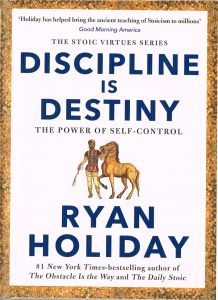A Banker’s Journey – reviewing a biography of Edmond Safra
Michael Millward November 5, 2024Bankers let’s be honest get a bad press, and always have done. Films and TV series portray an industry populated by people who driven by greed, stepping on and over weaker individuals as they engage in under the table deals, to accumulate personal wealth and of course the conspicuous spending of that wealth. It is an image that we, the people to whom use banks seem to buy-in. When the next banking scandal breaks, we are no longer shocked or disgusted. We just accept it as the way that things are.
So, as I have no knowledge of who Edmond Safra is my expectations of what A Banker’s Journey by Daniel Gross will be like are set before I open the cover.
The first paragraph on the first page signalled that it was time to rethink this banker, and what bankers and banking could and should be all about. Safra is a man driven by values, by tradition, by loyalty and using the skills and knowledge of his profession for the benefit of others.
In recent years, the dominant style of biography writers has been to focus on the negative aspects of their subject lives. It is as if they are hunting for headlines and a quick buck rather than creating a balanced appraisal.
Whilst Gross is an obvious fan of Safra, it is hard not to like this banker, Gross does maintain a balance in his appraisal of a life that I conclude, was well lived, as Sir Elton John records in the sleeve notes ‘with purpose and humility.’
The sleeve notes provide an indication of the impact that Safra had over the course of his banking career which started just after the end of the second world war, when he was still a teenager.
There are endorsements from global bankers like Arthur Levitt the chair of the Securities and Exchange Commission from 1993 to 2001 who describes Safra as the greatest banker of the 20th century. Then there are endorsements from global stars like Sir Elton and the film star Michael J Fox, who describes Safra as a financial genius balanced with a humanitarian instinct.
Reading A Banker’s Journey as someone who has had a successful corporate career and established a successful business, I am struck by how the way in which Gross recounts Safra’s life resonates on a very personal level.
When we embark on a career or set up a business one of the things that drives us is imagining the lifestyle that career or running that business will enable us to enjoy. In many ways we are just like those bankers, just with smaller bank balance. We dream about what we will be able to buy the house, the car, the holidays, the designer clothes the list goes on.
Gross tells how the intensely private Safra was able to create a huge public impact around the world as a result of the way in which he practiced his profession. In doing so Gross provides any corporate professional or entrepreneur with a blueprint of how to be both professionally and financially successful. The secret of Safra’s success is that he had a powerful sense of community within the many communities that he belonged to, and the values that underpin those communities. No matter how successful Safra became he never forgot the values of the community in which he was raised. He was also acutely aware of the importance of fulfilling the rightful expectations that his customers were entitled to have of him and his profession.
Safra may have been as Levitt says one of the greatest bankers of the 20th Century, but in A Banker’s Journey Gross has created a route map for how to do better business in a better way in the 21st Century.


